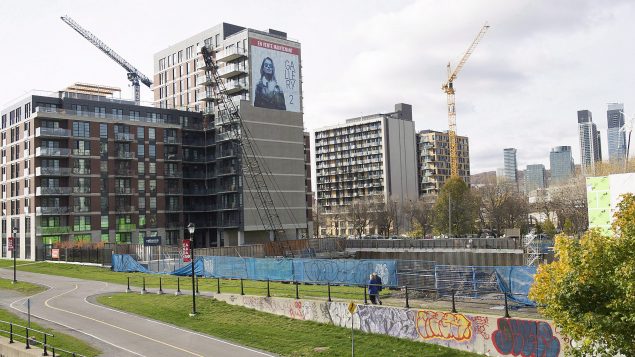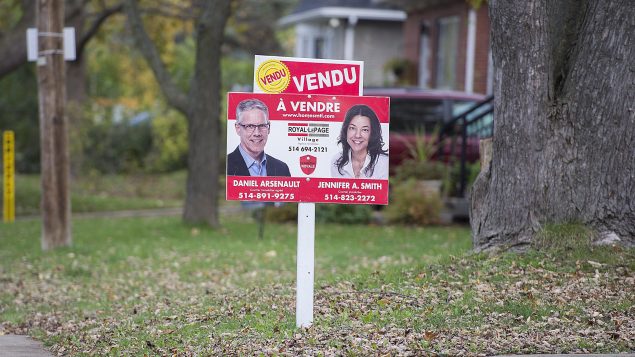Montreal real estate is now booming, in the wake of regulations that have slowed the formerly sizzling real estate markets in Toronto and Vancouver.
According to the Canadian Real Estate Association (CREA), monthly home sales were down 22,7 per cent in March 2018, but not in Montreal.
A seller’s market
An economic revival, in the largest French-speaking city in Canada, has also helped fuel sales, up ten per cent in the month of April this year, over last.
Paul Cardinal, director of market analysis for the Quebec Federation of Real Estate Boards, says the economic recovery includes 100,000 new jobs, many of them high paying in the growing tech sector.
“This is the 38th consecutive increase in the level of sales.” Cardinal says.
Listen
Montreal real estate is booming with areas such as Griffintown, seen above, undergoing the transformation from a former industrial centre to a new community in the heart of the city. (CP/Graham Hughes)
The unemployment rate in Montreal is at the lowest point since 1976, when Statistics Canada began recording the figures, and net migration to the region is up.
Steady slow growth
For many years the Montreal market was a well-kept secret. The price variations make it clear: the average price of a home in west-coast Vancouver is $1.4 million, in Toronto, Canada’s largest city, it is $800 000, and in Montreal it is $317 000, all prices in Canadian dollars.
The market has changed so much that bidding wars, previously unheard of in Montreal, now take place in one of every five sales, and a property is sold at a higher price than asking. This is particularly true for single family dwellings Paul Cardinal says,
And the condominium market, which is still in good supply in Montreal, may soon follow.
Montreal was historically the economic engine of Canada. In 1976, however, the provincial election of the separatist Parti Quebecois, sent shock waves through the country and many large companies and organisations moved their head offices and operations from Montreal to Toronto.
Subsequent language legislation that favoured French over English led to decades of debate and discontent in the minority English community, and a steady exodus of people was the norm.
These days, with a balanced budget and relative political stability that has evolved out of the recognition that the desire for an independent Quebec has waned, the city is investing in infrastructure.
And while construction may be causing headaches at the moment, it bodes well for the future of Montreal.
As for foreign buyers, who were often blamed for the soaring prices in Vancouver and Toronto, Paul Cardinal says it is very hard to ascertain the numbers.
He estimates it at just under 2 per cent, but acknowledges it could be more.
He explains the figures are drawn from Land Registry information where buyers provide their current address, but foreign buyers can provide a local address, as there is no tracking recent arrivals or time spent in Quebec or Canada.
Both Vancouver and Toronto imposed a “Foreign Buyers Tax” in an effort to cool those markets. Montreal’s mayor, Valerie Plante requested the power to impose a similar tax just after being elected last November.
(With files from CBC and CP)







For reasons beyond our control, and for an undetermined period of time, our comment section is now closed. However, our social networks remain open to your contributions.